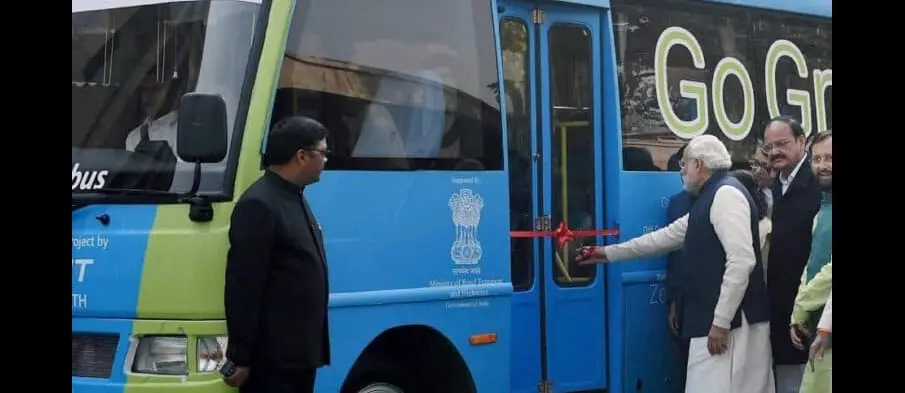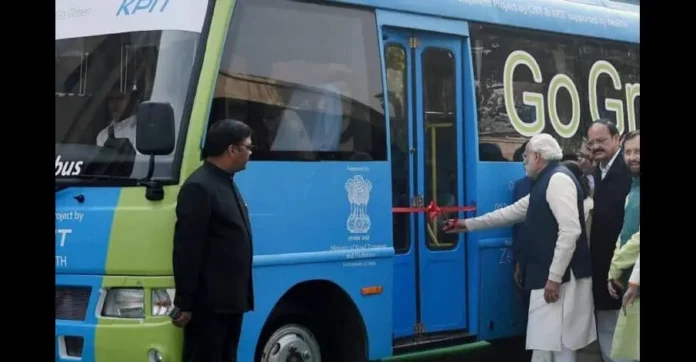
In a significant push toward green mobility, Union Minister H.D. Kumaraswamy has announced that 10,900 electric buses will be deployed across major Indian metros under the PM E-DRIVE scheme. This initiative, which aims to reduce emissions and promote sustainable urban transportation, marks a major step in the country’s electric vehicle (EV) strategy. The announcement followed a detailed meeting chaired by the Ministry of Heavy Industries to discuss the rollout strategy.
According to the official statement, Bengaluru is set to receive approximately 4,500 electric buses, while Hyderabad will get 2,000, Delhi will be allocated 2,800, Ahmedabad will receive 1,000, and Surat will get 600 buses. Kumaraswamy emphasized the importance of coordination between the Centre and state governments such as Karnataka, Telangana, Delhi, and Gujarat to successfully deliver on the promise of the PM E-DRIVE scheme.
Launched in September 2024, the PM E-DRIVE scheme replaced the earlier FAME (Faster Adoption and Manufacturing of Electric Vehicles) policy. With a budget outlay of ₹10,900 crore, the scheme aims to accelerate the adoption of EVs across various segments. It plans to support 24.79 lakh electric two-wheelers (E2Ws), 3.16 lakh electric three-wheelers (E3Ws), and 14,028 electric buses. The move comes amid rising demand from cities such as Bengaluru and Hyderabad, which have together sought over 15,000 electric buses. So far, the government has approved 7,000 buses for Bengaluru and 2,800 for Hyderabad, though the current allocation is slightly lower.
To improve implementation, the Ministry of Heavy Industries is working to reduce the subsidy claim processing time from 40 days to just 5 days by addressing technical bottlenecks and streamlining verification procedures. Additionally, the government is developing a super app for EV users, which is expected to include features like real-time charger availability, slot booking, payment integration, and deployment tracking dashboards under the PM E-DRIVE scheme.
However, reports suggest that the Centre is also considering reducing the per-unit subsidy for electric buses without increasing the overall budget, which could pose challenges to meeting the high demand from various cities. Nonetheless, the deployment of 10,900 e-buses in this phase signals a strong commitment to cleaner urban transit and represents a crucial leap in India’s electrification journey.





